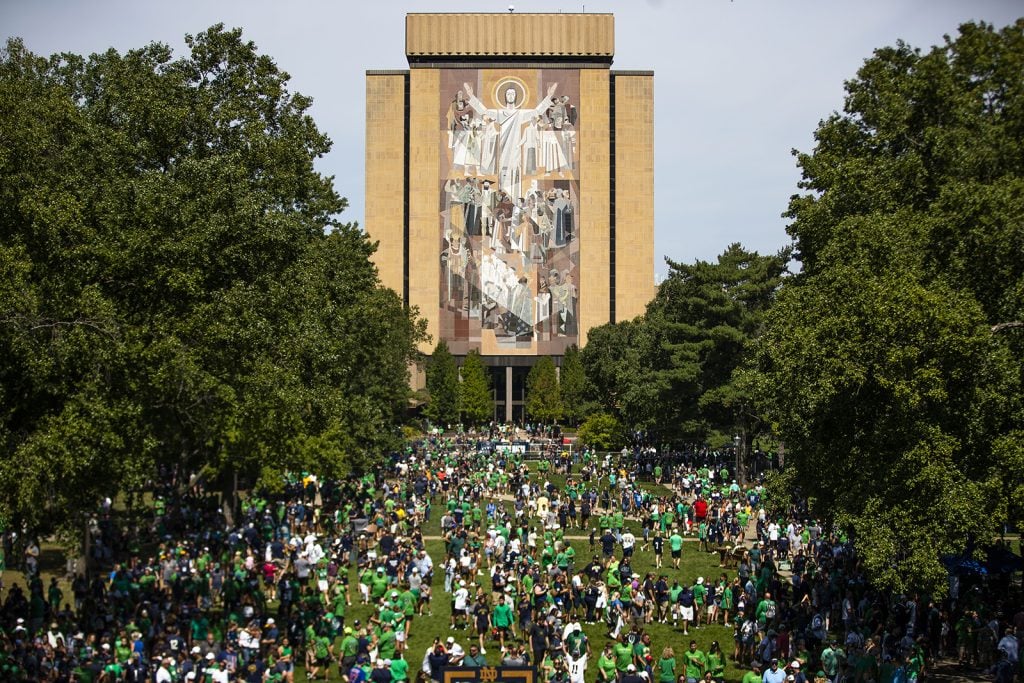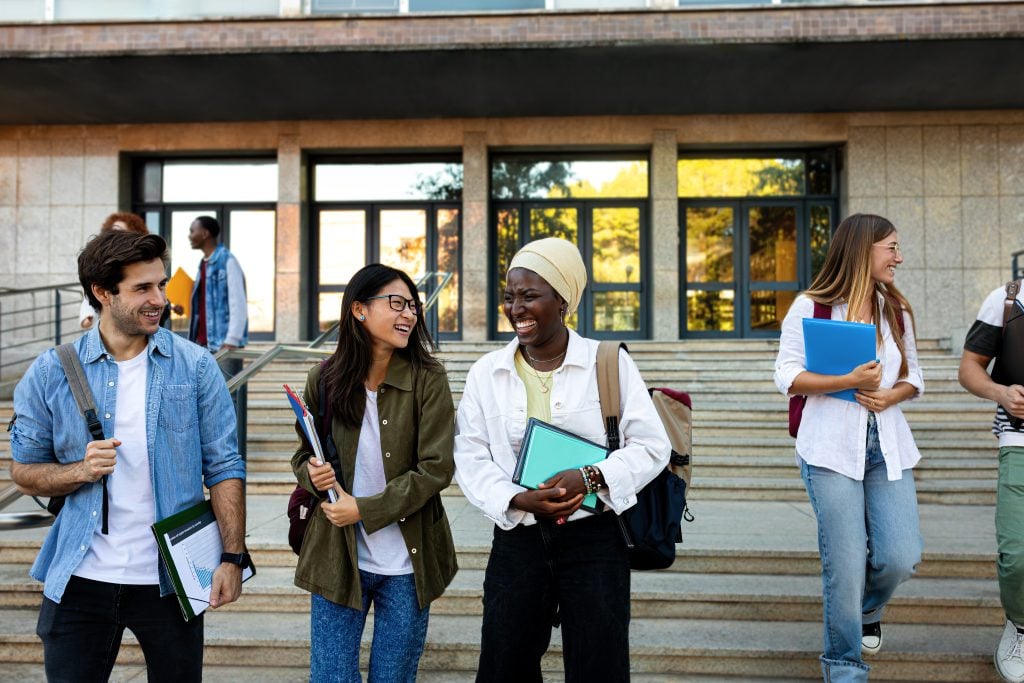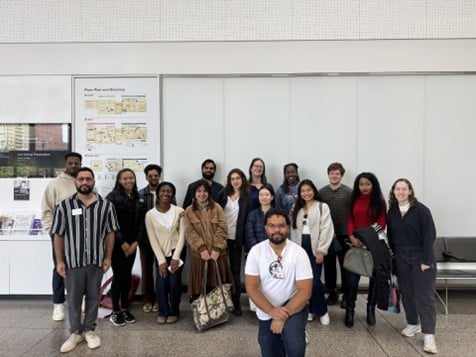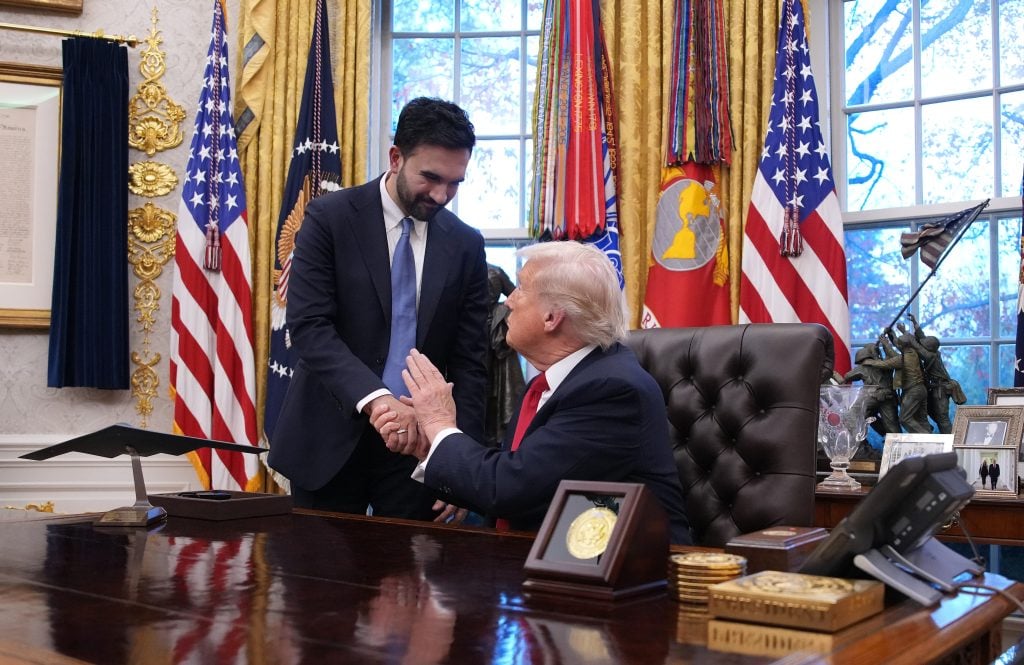Why Voting is Sacred
January 31, 2022
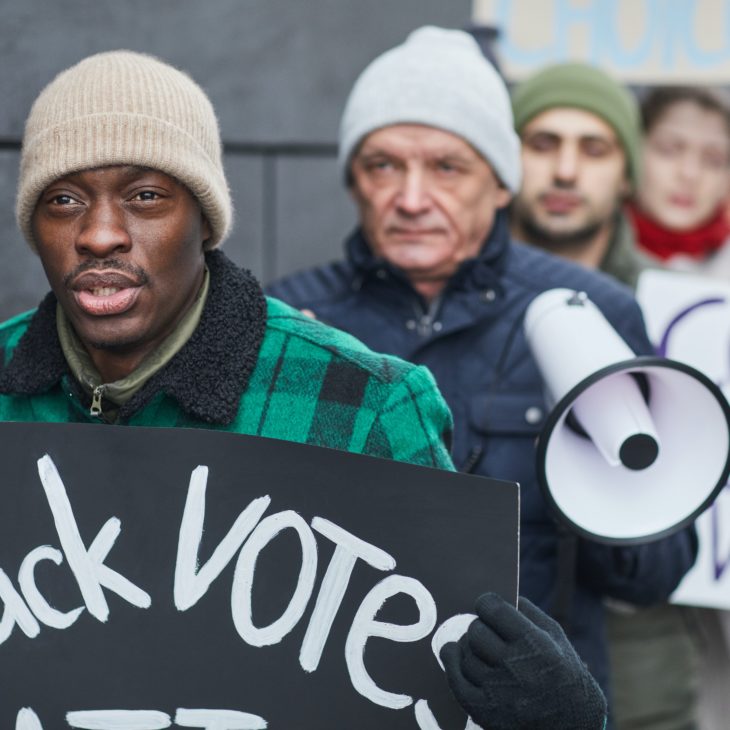
Over the last decade our nation has witnessed the rapid reemergence of voter suppression.
This extreme and immoral political and legal strategy intentionally targets our most vulnerable citizens and threatens our fragile democracy. In an engaging and informative virtual public conversation, we heard from a diverse array of national faith leaders, public intellectuals, activists, and organizers on why our nation must adopt an inclusive, nonpartisan interfaith approach to restoring and protecting our democracy. Rev. Tyrone McGowan from IFYC moderated the panel on January 13, 2022 that included Rev. Adam Russell Taylor, Rabbi Sandra Lawson, Dr. Simran Jeet Singh, Vanessa Gomez Brake, and Imam Mohamed Magid.
Learn more about the Vote is Sacred project from Program Manager, Tyrone McGowan, and read some highlights of the conversation in How MLK Inspires Interfaith Leaders to Continue the March for Voting Rights.
Share
Related Articles
Related Audio
Please see below the transcript of the whole conversation:
Tyrone McGowan
Good morning, and welcome to this important conversation. I’m Reverend Tyrone McGowan program manager at IFYC. And on behalf of our founder and president Eboo Patel, and our board and staff, I am honored to welcome each of you to this very important timely public conversation. I voting era and Interfaith response to protecting our democracy.
We are gathered here today because it is no secret that our democracy is under attack, that our democracy is in peril and our basic fundamental right to vote, and have those votes counted in free and fair elections is under attack. According to the Brennan Center for Justice, last year across the nation, the state legislative push to restrict access to voting was not only aggressive, it was also successful. Between January 1 and December 7, at least 19 states passed 34 laws restricting access to voting. More than 400 deals with provisions that restrict voting access were introduced in 49 states in the 2021 legislative sessions. If we fail to act in this moment, with what Dr. Martin Luther King Jr, calls the fierce urgency of now. We will never fully live into the possibility of truly becoming a diverse, multiracial democracy. As a nation, we stand in a moment of creative tension. We are one year removed from the U.S. Capitol, the Cathedral of American democracy being attacked, and the will of the people attempting to be subverted. And we are just a few days away from what would have been the 93rd Birthday of Dr. King, whose nonviolent moral vision for America stands in stark contrast to the horrific violence we witnessed one year ago.
We have a choice. Will we become the nation of January six, or boldly and courageously live into the beloved community? Yes, voter suppression is a political problem. But as a result of our conversation this morning, we will articulate that it is also a moral and a spiritual problem. This critical moment that we find ourselves in presents diverse religious communities with an opportunity to reclaim their moral voice, spiritual authority and public witness to collectively say in the words of Eboo Patel, a diverse democracy is sacred and protecting it is wholly can a diverse network of faith communities come together to reimagine and co-create a future where all voices can be affirmed, heard and contribute to the shaping of our ever evolving democracy.
Today, I’m excited because we have a distinguished expert panel of some of the world’s foremost religious leaders, public intellectuals, activists and organizers, who will help us answer some of these questions and share their rich insight and wisdom on why it is imperative that we form an interfaith movement to protect our democracy, and why civic engagement especially voting is an essential component to our religious traditions. We will hear from our panel in just a moment.
But I’m also excited because today’s public conversation is a part of a larger, brand new multi year initiative from IFYC entitled Vote is Sacred. This is a robust, innovative national nonpartisan program that seeks to engage and mobilize students and those in the higher education community, as well as the faith community around the idea of the centrality of the vote in a religiously diverse participatory democracy. Essentially, we seek to spark an ongoing national conversation about why voting and civic engagement are rooted in diverse faith traditions, and how we can come together to preserve, protect and expand the right to vote for all citizens. We invite each of you to join us on this new exciting journey. You will hear more about Vote is Sacred in the coming months so we encourage you to stay connected with us for more information.
Before we hear from our panel, we have the privilege of hearing from one of the nation’s leading voices on the issue of faith and civic engagement. He is a friend of our organization. I’m pleased to introduce this morning, the Reverend Adam Russell Taylor, who will serve as our keynote, who give our keynote address today. Reverend Taylor currently serves as the president of Sojourners, and he is the author of the recently published A More Perfect Union: A New Vision for Building the Beloved Community and of the book, Mobilizing Hope: Faith Inspired Activism for a Post Civil Rights Generation. Reverend Taylor previously led the faith initiative at the World Bank Group, and served as the Executive Director of Global Justice. He was selected for the 2009/2010 White House Fellows to serve in the White House Office of Cabinet Affairs and Public Engagement. He is a proud graduate of Emory University, the Harvard Kennedy School of Government, and the Samuel DeWitt Proctor School of Theology. He has ordained in the American Baptist Church, and the progressive National Baptist Convention, and currently serves in ministry at the historic Alpha Street Baptist Church in Alexandria, Virginia. Please help me give a warm IFYC Welcome to Reverend Adam Taylor.
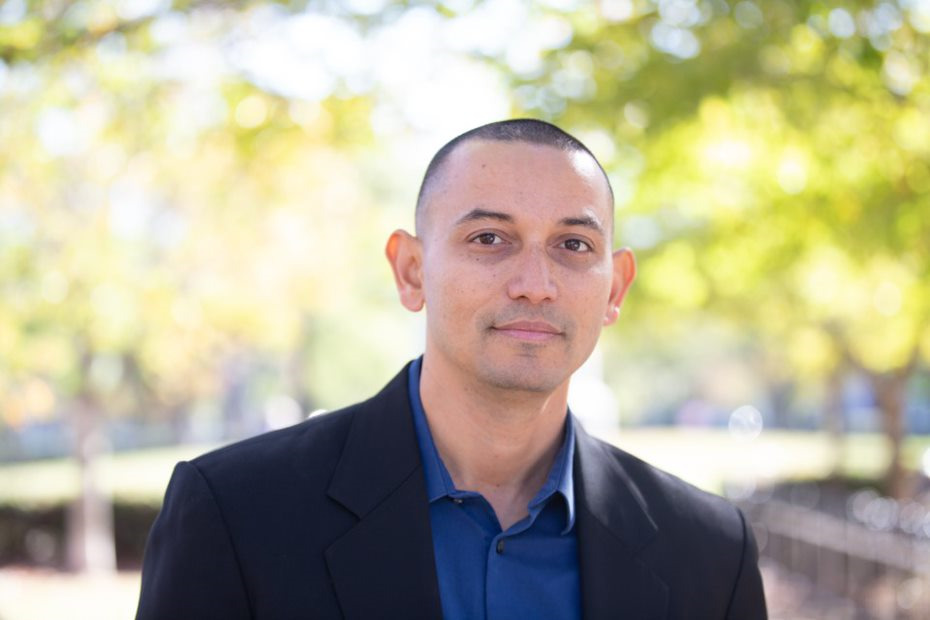
The Rev. Adam Russell Taylor. Courtesy photo
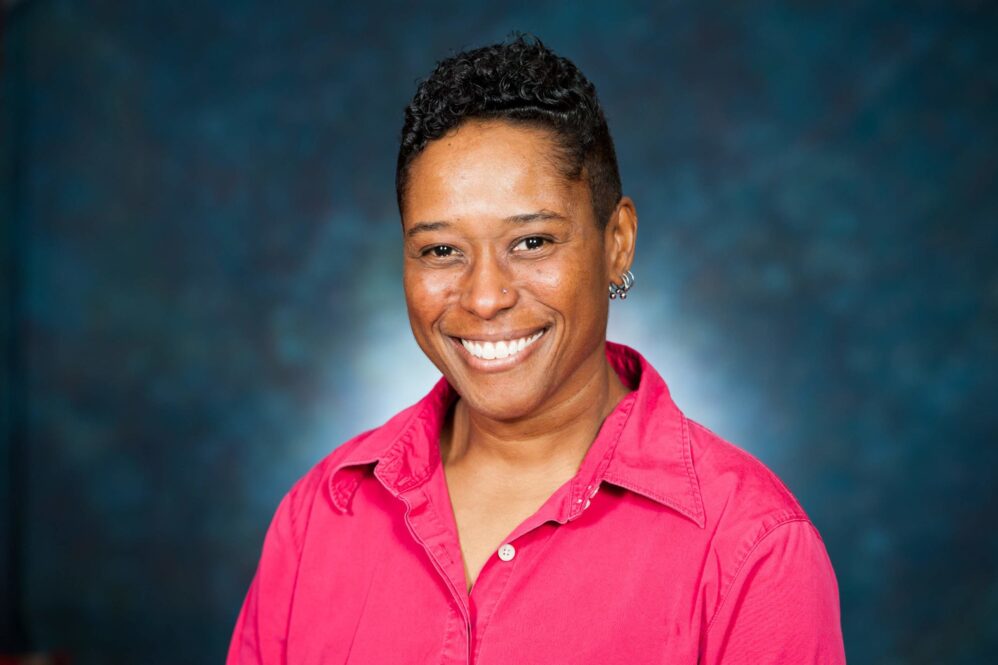
Rabbi Sandra Lawson. Courtesy photo
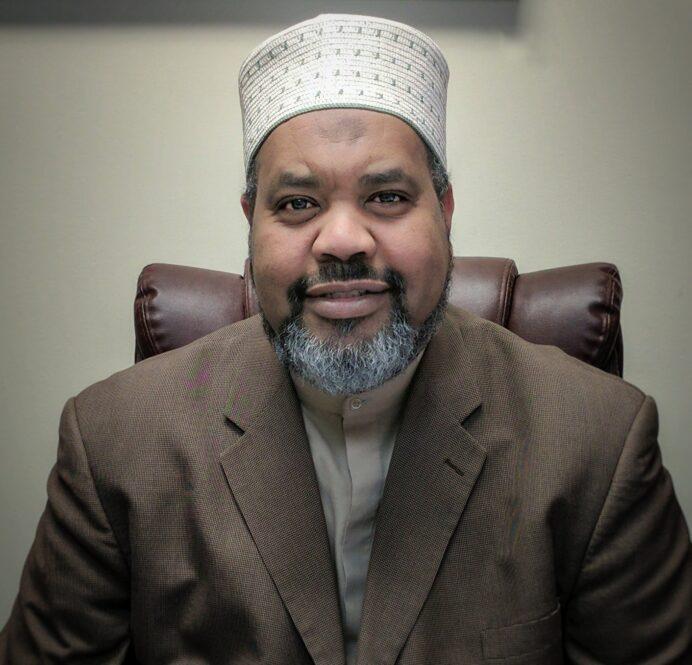
Imam Magid, Vote is Sacred Thought Leader. Courtesy photo
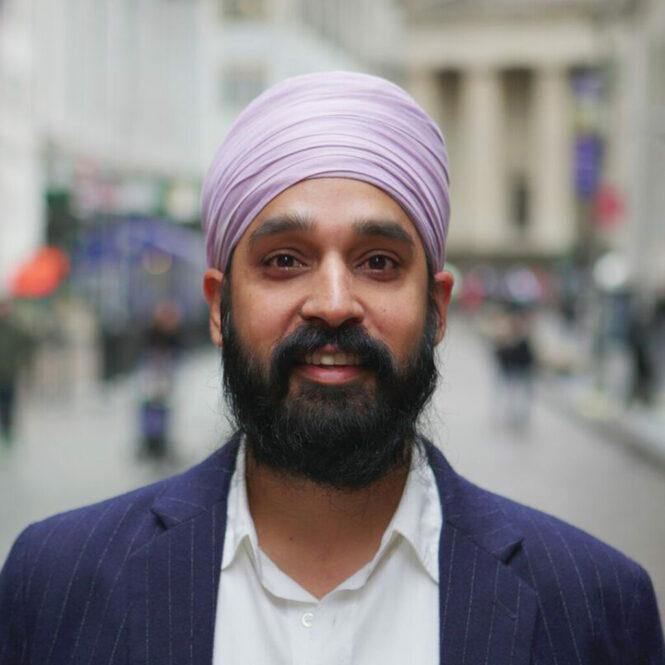
Simran Jeet Singh. Courtesy photo
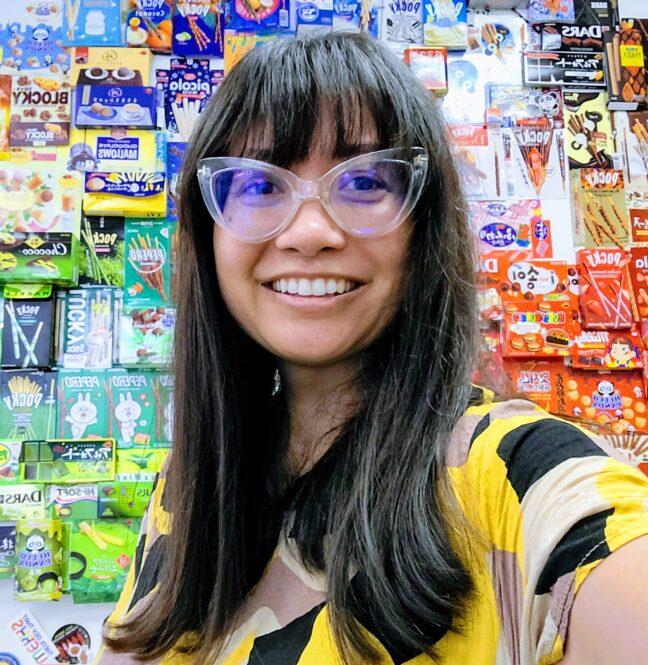
Vanessa Gomez Brake. Courtesy photo
Rev. Adam Taylor
Thank you, Tyrone. And thank you Interfaith Youth Core, Eboo and so many others for the generous invitation to join you today. To speak about why the vote is sacred. You chose some pretty historic, maybe providential timing in doing this initial webinar, this Zoom meeting on the vote of sacred in this particular week, and I’ll share more about what is literally likely to happen today in the House of Representatives, and potentially in the Senate, either today or tomorrow. But I also just say that, please put on your seat belts, because I’m going to try to cover a lot of ground very quickly. As a black Baptist preacher, 12 minutes is like giving a tick tock to a whale. So I’m really going to try to hold to that that time limit. But really, I’m interested to hear from other panelists, and I’m honored to be in their presence and to be a part of this panel with them. I often believe that I was born in the wrong era. I grew up in the shadow of the Civil Rights Movement. My parents made the controversial decision to get married in 1968, the same year that the Dr. Martin Luther King Jr. was assassinated. And it was controversial because my Afro American mother and my white father married each other at a time when there was a huge amount of pressure from their own family members and friends not to get married. They decided to put their love for each other over so much of the bigotry that they encountered. Just a year after interracial marriage was legalized in the country through the case Loving versus State of Virginia, my parents instilled in me, the deep and abiding belief that not only am I made in the image of If God and that as a result, I have inherent dignity and worth, but that our nation’s diversity, including our racial diversity, and our religious diversity was a strength and not a weakness. It was an asset and not a liability.
They also instilled in me this belief that my generation, Generation X, inherited the unfinished business of the civil rights struggle. And I have to admit that I internalize that to a great degree as I was growing up. I tried to read everything I could get my hands on about Dr. King’s writings and the history of the civil rights struggle. And I started to feel as though my generation was somehow in some cases, skipping a beat was taking for granted somebody that struggles that came before us. And I am grateful that I have seen a resurgence of a commitment to faith-inspired activism in a new generation, and I hope that all of you are included in that number. I believe that we are facing one of our most important and historic tests right now, due to a mounting assault on our very democracy. I was particularly inspired by the role that the Student Nonviolent Coordinating Committee played — it was the student arm or the young arm of the civil rights struggle. And I have believed ever since studying SNCC and learning about their courage and their resilience in pushing against Jim Crow segregation, and ultimately dismantling it through the passage of the 1964 Civil Rights Act, the 1965 Voting Rights Act, that at their best young people and students are the moral interrogators. They are the spark plugs that so often ignite and fuel social movements. And we need that kind of faith-inspired activism more today than we have needed it in a very long time. I’ll be really honest with you all. And I feel like maybe I’m naive in believing this. But I thought that voting was kind of a done deal, that the unfinished business of the civil rights struggle would really tie into the ongoing work around fighting poverty and economic justice, which is exactly what King was doing in supporting a poor people’s campaign before he was so tragically assassinated. I thought it was going to be focused on the ongoing struggles to transform our justice system, and ensure that everyone truly could benefit from equal justice under the law. Well, it’s true. Those are ongoing struggles, and are part of the unfinished business of the civil rights struggle.
But voting has now been put back on the table. It is metastisized into a not only an ongoing civil rights issue, but also a fundamental issue of our faith. Why is the vote sacred? It is sacred because any law that restricts the sacred right to vote is unjust because it denies people their agency and their vote, and their voice. Put in theological terms, unjust laws, assault, the Imago Dei, the core belief that every person is made in God’s divine image. And what is true for unjust laws is also true for unjust procedural rules in the Senate, particularly the current filibuster. We know that racism has deformed American democracy since the inception of our nation. It’s important to kind of place this ongoing struggle for voting rights into a long continuum of history. As Maya Angelou once said, we can’t know where we’re going, unless we know where we’ve been. We must remind ourselves that voting when the founders of our nation created our Constitution, and ultimately gave birth to this nation, was confined to white land owning men, literally about 10% of the population that time. So not only were Native Americans excluded, and enslaved Africans excluded, but so we’re women. So we’re so many others. And so when we think about our history, it has been this pursuit of a more perfect union. But there’s no pursuit of a more perfect union without a pursuit of a more representative and inclusive democracy. And that’s where expanding the right to vote has become such a cornerstone for what it means to help create a healthy, multiracial democracy.
Voting we know unlocks so many of our other rights, as Dr. King once said, “So long as I do not firmly and irrevocably possessed the right to vote, I do not possess myself. It I cannot make up my own mind. It is made up for me. I cannot live as a democratic citizen observing the laws I’ve helped to enact, I can only submit to the edict of others.” I want to be crystal clear, and I think it’s important that we all understand this as we reflect on why the vote is sacred. That voting is is a bedrock of our democracy. And it has been, and should be both a nonpartisan issue and a bi partisan priority. Now sadly, that has not been the case since the year 2013. When through a Supreme Court ruling, called Shelby vs. Holder literally took the teeth out of the 1965 Voting Rights Act, and stripped away what’s called a preclearance provision that required that southern states in particular had to preclear any changes their voting system with the Justice Department to ensure that they didn’t have a negative or disproportionate impact on voters of color. Once that Supreme Court decision was made, you saw a free for all, in many states across the South, but also in the Midwest, that have been putting in place new policies that have become the modern day forms of voter suppression. Now, oftentimes, these policies are more sophisticated, they can be more subtle, but they have the same intent. And many of them are having the same impact, as so many of the policies of the Jim Crow era, a poll taxes and and others. And so I want us to be really clear about a couple things in my faith tradition, the Christian tradition, Jesus says it plain that only the truth will set us free.
Well in order to embrace our vote as sacred, there are a couple of truths that I think we need to emphasize. The first is that voter suppression is real and it didn’t simply start after the 2020 election. In fact, there have been bills have been passed for the last multiple election cycles that have done things like enabled purchase to happen a voting roles, things like limiting early voting, things like moving polling sites that just happen to be concentrated in communities of color and in urban centers. There is a playbook that has been in place for multiple election cycles, including robo calls, discouraging people to vote and given them misinformation, including more stringent ID requirements, and so much more. What is clear is that those tactics, those kinds of policies have been put on steroids, in response to the big lie in the 2020 election promulgated by the former President Trump, that there was widespread voter fraud that ultimately stole that election. Well, many state legislators, particularly ones that are Republican-controlled in the South and in some parts of the Midwest, have felt a kind of obligation to respond to that lie by putting in place further provisions that would restrict the right to vote all under the pretense of protecting election integrity.
And that brings us to the second truth, which is that, while voter suppression is real, voter fraud is a myth and the big lie has become a toxic part of our democratic system. It is undermining the very legitimacy of that system. There was a poll that was done just a few weeks ago, and it found quite alarmingly, in December 14 to the 20th, that only 21% of Republicans say Joe Biden’s victory was legitimate. The majority of Republicans are buying into this big lie that the election was stolen, which is part of what is made this into such a partisan issue. But I believe the way that we can break through a partisan issue is by emphasizing our theological, our faith, our moral commitments to treating the vote as sacred. We are in a make or break moment, literally this week, where the House of Representatives is going to be voting on a combined bill that basically brings together the John Lewis Voting Advancement Act and the Freedom to Vote Act. Very quickly, John Lewis Voting Advancement Act would prevent discriminatory practices and rules in voting from being implemented in states and localities where discrimination is persistent and pervasive. It will protect access to the vote for all eligible voters, regardless of race, color, membership, language, minority group, and it restores voters ability to challenge discriminatory laws. The Freedom to Vote Act would enact automatic voter registration throughout the country. It would offer 15 consecutive days of early voting as a standard policy across the country would offer same day voter registration at all polling locations by 2024. It would help to combat so many of the gerrymandered districts that have been created around the country. It would make Election Day a public holiday. And it would help to protect against election aversion, which is the even more dangerous form of bills that have now been passed in 14 different states that make it easier for state legislators to overturn election results. Now you may may know that one of the biggest obstacles in achieving these two bills that would help protect the right to vote and help safeguard our democracy is this arcane procedural rule in the Senate called the filibuster. It wasn’t the first time the filibuster has reared its head. Back 50 years ago, the filibuster was used time and time again, to block votes and to block debate on civil rights legislation.
And we often hear that history has a way of writing well, 50 years later, we find ourselves in a similar moment where that same filibuster has been used to block both these bills from even being debated in the Senate of the United States Congress. Well, literally, today the house is gonna vote on both these bills and pass them and then send them to the Senate in a procedural way that’s going to force a debate on these bills in the Senate. And I believe this is a moment that’s going to test the moral courage and the conscience of our nation and in particular, senators. Will they place a procedural rule and an allegiance to procedural rule over their commitment to our democracy? And will they honor the legacy of Dr. Martin Luther King, by protecting the right to vote as something that is sacred, and something that is necessary? I want to end with how I started, I truly believe that students could be a game changer. Young people and students can be a game changer when it comes to protecting the right to vote is sacred. Again, you can be the moral interrogators, the one that pushed the envelope that hold us accountable to our professed ideals. The vote is indeed sacred. Because every person is sacred. The vote is sacred, because Injustice anywhere is a threat to justice everywhere. The folk vote is sacred, because it affirms our inherent dignity. And so let us together make the vote sacred.
Tyrone McGowan 21:59
Thank you so much, Reverend Taylor, for that those powerful moving inspiring remarks, I believe that appropriately sets the stage now for our conversation. So I’m going to invite our panelists into the this virtual space this morning. And we warmly greet each of you. And they will introduce themselves in just a moment. I’m so excited to see you all. So on this first question, I’m going to try to combine two questions in one, I’m trying to be a little bit ambitious here. So I would like each of you to just briefly respond any initial responses to Reverend Taylor’s address. One, I want you to just briefly introduce yourselves one or two sentences to our to our audience. Any responses to Reverend Taylor’s address. But also fundamentally this is the main question to kind of get started. Why is voting or civic engagement sacred to you? Reverend Taylor answer that in his address, but why is it sacred to you and your particular faith tradition? And how do you convince someone, someone else that the vote is sacred when so many people feel like especially now in our polarized democracy? So many people feel like the vote is their only option between the lesser of two evils? How do you convince someone else that is sacred? How’s it sacred to you and your tradition, and how you convince someone else that their vote is sacred as well, we’re going to start first with Rabbi Lawson.
Rabbi Sandra Lawson
Hi, everybody. My name is Rabbi Sandra Lawson. And I’m really excited to be here. I’m always excited to do anything with IFYC. And in my day job, I work as the director of racial diversity, equity inclusion for Reconstructing Judaism. So I’m going to answer the second part first, because that’s fresh in my mind. Um, you know, how do you convince someone you know, that is, you know, we live in a very incredibly polarizing society. And one things I always say is that the people we vote for are human beings, and they’re not perfect, and no one is really going to ever live up to all of our hopes and dreams and aspirations of who we want to elect. And we do have a party system and I don’t see this as the lesser of two evils. But I see this as who aligns more with your values. Because if you wait for the perfect candidate that’s going to line up with everything you believe in. That’s just never, that’s just never going to happen. The other thing around you know, what the Jewish traditions say around voting, Judaism, there’s a lot to say but what I’ll pull from right now, is this our Jewish value, hakarat hatov, which basically is gratitude, it is recognizing the good we are citizens of this country, the first Jews that came to this country country were immigrants. And in appreciation of being given citizenship in this country where they weren’t given citizenship in other countries and appreciation for that, we see it as our civic duty and our responsibility, it’s a mitzvah, it’s a commandment, it’s a good thing, to vote and to participate in the democratic system.
Tyrone McGowan 25:35
Thank you for sharing Rabbi Lawson. Simran?
Simran Jeet Singh 25:40
You know, I’ll say that as a Sikh, our core teaching, is that there is a divine force that connects us all. And we’re all equal, right? There’s no way that you could say someone is good, or someone is bad. And therefore, we should all have equal access to happiness, right? It’s very simple. And it’s, it’s right in line with what we’ve been discussing. And you know, in every evening, as we go to bed, we say the words of Guru Nanak, we say sabh meh jot jot hai so-ay, tis dai chaanan sabh meh chaanan ho-ay, “The same Divine Light is in every single creature.” And part of our challenge as humans is to learn how to see the divine light in one another. And that’s, that’s a challenge we talk about a lot, and we think about a lot and it’s an important one.
And, you know, as I was reflecting on this question, I was thinking, well, there’s another related challenge. Because in a society where we’re constantly denigrated, and told that we’re less than on the basis of our gender, or race, or religion are so much more, it can become really easy to forget that we, too are part of that same light, right, individually. we internalize what society thinks and says about us, and we give it so much weight that we don’t see our own divinity. And so he’s always thinking about this conversation and came across this teaching of Guru Amar Das, the third guru, who says, man too jot saroop hai aapnaa mool pachhaan, and he says, “Oh my mind, you are an embodiment of that divine light. Go realize your potential.” And I love that it’s such an empowering message. I mean, it’s it’s, it’s, it’s almost like a slap in the face as I was thinking about it, that it reminds us of who we really are. And that we have to do work, to honor our own humanity. And as a Sikh, that the core teaching is that ensuring that we care for ourselves is just as important as ensuring that we care for one another. And it’s when we do these two things together, caring for ourselves and one another, that we can truly produce the just, equitable society that so many of us are dreaming of, and that we’re aspiring towards. So that’s that’s just a short reflection on what my tradition teaches me about voting and civic participation. Again, thank you for even initiating this conversation. I’m really, I’ve really gotten a lot out of it.
Tyrone McGowan 29:39
Thank you for sharing that very thoughtful response. Thank you, Simran. Vanessa?
Vanessa Gomez Brake 29:47
But I want to give you a bit of my family tradition, perspective, because as a Filipino American, who grew up on the island of Guam, I have a pretty unique take on this, because many Filipinos were coming over to the mainland from the late 1800s, up and through the 1950s. Because we the Philippines was a territory of the US. But you know what happened? Most of those Filipinos who came over were young men, they were not allowed to marry, they were not allowed to vote, they were only allowed to labor. And that was their lives. So the vote matters to me, I want to vote because I can and I can enact change for my people and for the American people. And then having grown up on Guam, yet again, another federal territory of the US. Of course, folks on Guam are American citizens by birth, however, they do not have the right, they do not have the privilege of voting in presidential elections. And so this was strange to me, because I was actually born in Arizona before my family decided to go to Guam. And I have these memories of how sacred the vote was to my family, because my parents, they would carry me as a baby into that polling site. And when I was old enough to walk, I would walk with them. And of course, we were going early in the morning, before they had to go to work because everyone has to go to work on election day. And I just remember them putting a pencil in my hand, and they had little, you know, ballots for us kids and my parents walked me through it and said, so this is a person we’re voting for and let us tell you why we’re voting for them. And so from the beginning, my parents let me know that change was possible through a pencil and a piece of paper. And so as I think back to then going to Guam and realizing that many of my people I grew up with and so forth, if they remain on the island, they do not have a say as to who oversees this country. And so that’s a few reasons why I hold the vote sacred. And I think I’ll end with that.
Tyrone McGowan 34:21
Thank you for Vanessa. Thank you. Mr. Magid, close us out for this first round.
Imam Mohamed Magid 34:35
What I think this is about inclusive citizenship, period, inclusive citizenship. If you cannot have access to vote, you are not being counted as a citizen in this country. For inclusive citizenship has to be our priority in this country. The last thing I want to say so that I don’t make a long sermon, you know, if you give a clergy a microphone, oh, my God help you. Joseph, the story of Joseph in Holy Quran, and in the Bible and the Torah, Joseph have asked for the office, and Joseph becoming charge of the entire Egyptian system. But he has believed in change. Many of our people have lost faith in democracy because they’ve see how they been treated, and how their vote have been looked at as something not important. We need to restore faith within our community. You must not take it for granted. You have to know some people lost their life in this country, for a black man like me, to vote, for women to vote. And therefore this is a very important moment. This is a very defining moment in our country. Before we have to roll our sleeves to stand again to restore the dignity and honor on our democratic system and to tell our community, I wanted to know, this is part of your faith, you must participate, you must let your voice to be heard, you must mobilize your community to exercise their right. So that they can be counted as full citizens.
Tyrone McGowan 40:26
Thank you so much for that powerful response, Imam. And you, you kind of touched on where I want to go next and talking about student engagement. Reverend Taylor, you touched on it in your your opening remarks as well. I want to first go back to to Vanessa, and anyone else can respond to this question as well. From her perspective there, at the University of Southern California, significant piece of voters sacred will focus on mobilizing college campuses, the higher education community, especially in states that have the most draconian voter laws. So what is the role? And we kind of talked around this, but what is the role of college students in this movement to protect democracy? I’m interested in their role as potential voters, and organizers, and what’s at stake for them and why should they be engaged in this fight with us? Vanessa, I’ll start with you.
Vanessa Gomez Brake 41:25
Thank you for that question. I think oftentimes, young adults or college students get a bad rap, like they’re not showing up to the polls. But the good news is, between 2016 and 2020, there was an increase of something like 16%, among young adults at the polls, and so amazing, and yes, let’s keep doing that. But here’s my perspective, having worked at USC and previously Stanford, these sites are some of the most active sites I can imagine, because everything that is going on in our nation and our world, our campus is a microcosm of activism. And so we see it on the quad, at least once a week, whether it’s a protest and action are just folks getting others interested in particular issues that are important to them. And so I bring that up, because, yes, my Secular Student Fellowship here, one of their biggest activities is getting students signed up to vote. But that’s not the only thing college students can do. What they can also do is organize, they can be involved in every level of this, right. And so on my campus, I’m thinking about how they’ll get you to register to vote, but then they’ll invite you to a voting party, like, “Hey, I’m going to meet you at the polls.” And they’ll incentivize the voting as well, not just giving you a sticker, but giving you a reason to show up at the poll too. And then later that day, having a party such that everyone who’s got that sticker, is really celebrating their part in enacting change, right. And so that is just a glimpse as to what it looks like and what students could be doing on campus. And I actually have so much hope when working with young adults, because they are so in touch with what’s going on in the world. I think oftentimes we hear, you know, Gen Z, younger millennials, they don’t trust institutions, right? They’re either leaving organized religion, right, which is why I see a very lively secular fellowship on my campus, and yet, they’re leaving religion and they may be giving up on existing systems. But what they are doing is they’re organizing, they’re co creating, they’re co leading change for their own communities. And that I believe, is a spiritual practice, when one is advocating for one’s values, and attempting to do so in collaboration with their neighbors, that is a spiritual practice. That very much harkens back to the civil rights era. And like Reverend Taylor said, it’s a new age of faith activism. And whether you’re religious or not, this is a spiritual act for these students. So yeah, that’s my thought.
Tyrone McGowan 44:17
Well, thank you, if anyone else wants to respond to that question, what’s at stake for for college students, young adults, in this fight for voter rights?
Simran Jeet Singh 44:27
I’ll share a word briefly. And this is sort of a reflection on you know, I grew up in Texas, went to college there, and actually taught there for a few years. And now I’m now at a chaplain at NYU and I’m seeing the same thing that Vanessa was describing, which is, you know, there is a level of mistrust that I think young people have with government, they feel and with older generations, they feel like we failed them and I think they’re not wrong. I think they’re right they realize that to truly create the futures they want, they need to take matters into their own hands. And I think that’s a really powerful and beautiful thing. And I’ve seen my students, across campuses across states, I’ve seen them organized. And I think one of the missing ingredients here that I’ve been thinking about a lot the past few years is there’s a, we have a very sort of homogenous understanding of who young people are and what they care about. And so and so we sort of, invite them to care in their way. And we, we sort of let them do their own thing. But I think the opportunity here is, we can equip them with more skills, we can equip them with more insights. And I think if we truly understand the diversity within this upcoming generation in the way that they already understand, we can do a better job of meeting them where they are, and providing them with the kinds of resources that would actually help them audiences. You know, your other question earlier was about how do you how do you get people to care, I think you have to meet them where they are. And so to truly understand, and I think this is where this conversation and IFYC work can be really powerful, that there is a large segment of young people who care about these issues, because they’re people of faith. And we’re not really having that conversation and providing them resources to then go out and engage other people of faith, who might then be moved to, to engage more in the civic context, so I think there’s a real opportunity there.
Sandra Lawson 46:40
So I’ll just I’ll just quickly add that, like, I agree with what Vanessa and Simran said, so until February, until March of this year, I was a, I was a chaplain at Elon University. And, you know, as I alluded to earlier, in Judaism, many in our tradition see voting as a mitzvah as something that we should be commanded to do. And one of the cool things about, you know, being on campus during the election cycle, it was it was an opportunity for me to see Jewish students and other students who might not be, might not be Jewish, organize and strategize around around voting. And so like the Hillel, which is a Jewish student organization had like mitz vote, but they would also collaborate, you know, the combination of Mitzvah and voting, but they would also like collaborate with, you know, the Center for the, Center for Racial Equity, Diversity and Inclusion, on strategies around voting, and give rides to people. This was all student organized, I mean, staff-supported, give rides to people to the polls, if people wanted to change your voter registration. I’ve had a conversation with a student once, who was so concerned that her mail-in ballot when she did not get it or something like that just drove five hours to Atlanta, just to vote. So this generation of people, at least the ones that I’ve been exposed to really do care about our issues, and their priorities may not be the same as ours. But they do care about our, our society where it’s going, they care. I think they care more about climate change than any other generation so far, and they’re very, very passionate, anybody’s worked with college students know, it’s kind of exhausting. Because they’re like, everything’s immediate. And now. And it’s awesome.
Imam Mohamed Magid 48:47
Yeah, if I may. First of all I would like to say that most of changes that I have witnessed my myself, even as growing up in Sudan, have made by students sit on campus is have led revolutions actually, in most of the countries that you know, in Africa and so forth. They lead the change in their communities. But three things I would like to say, why this very important initiative to work with students on campuses. Number one, I do believe that students on campuses can come back also to the congregation, their communities, mobilize their parents, and educate people in the civil rights, movement, civic engagement and all of the aspects of why you should vote, number one. Number two, I think that they are very savvy in social media. They can multiply this impact very quickly and spread it around the United States. The third, you know, they can help the clergy like me, you know, to have the religious message of the important avoiding being conveyed to the larger community because they’re very articulate. And they have the means and ways of conveying messages. But I do believe that the, the students could be a, you know, on campuses, but also can have programs on site on churches, synagogues, mosques, temple, clubs, or whatever it may be the communities and lead the movement of civic engagement, and education. Because I do believe this initiative can really make a big, big difference. And in America, by restoring faith in democracy, by creating hope, that the second generation says, We’re not going to take it for granted. For I’m looking forward to see this initiative. And I would like to receive the benefit of it in my community by having young people come back to my mosque, and make sure that every person were able to come to to be able to vote, they provide transportation, they provide information, they translate informations in various languages, because you have to remember some of the students, their parents come from overseas, or as immigrants, as refugees, but they are citizens, but the children can encourage them to engage in democracy by leading them into this process.
Adam Russell Taylor 51:51
Okay, quickly jump in at least one of the way and I’ve really loved this conversation. I’m grateful. Yeah, all the points made. So when I was in college, I joined a fraternity, proud member of Alpha Phi Alpha Fraternity Incorporated, we have a national campaign that says voteless people as a hopeless people. And one of the things that I think we have to emphasize is, no matter what happens or doesn’t happen with this federal legislation, obviously, I’m all in and trying to get these across the finish line, hope you all join me, and so many others, we have to emphasize that, while these efforts are really anti democratic, people can still exercise their sacred right to vote, it’s being made more difficult. But in most cases, people can still vote, they may need more assistance and support, they may be confused of what the election rules are. But I think college students in particular could play this really profound role in helping to empower and support so many of the most vulnerable populations. So they can still exercise the right to vote, even if some of these barriers and restrictions stick around, you know, obviously, to do what we every weekend at the state level and federal level, to get rid of them. But let’s not that let that deter people from voting, it actually should motivate motivate us even more to ensure that people can exercise that sacred right.
Tyrone McGowan 53:13
Thank you all in our last about seven minutes. You know, I have about 10 more questions for you. We don’t have time, unfortunately, get to all those so that that means we have to do this again s I get my questions answered. And our final final kind of round of questions as we approach the holiday of Dr. King’s birth, which I believe is a holy day. What would he be saying and doing if he was still with us today? What does his moral, spiritual and political authority? How does that still speak to us and inspire us in this moment? In your in your closing remarks, can you just kind of send us out and back into the world with just a little bit of hope? And also, can you just tell people tell the audience how they can still remain connected to you. In your closing remarks in our final five minutes? Simran, we’ll start with you.
Simran Jeet Singh 54:16
Yeah, I you know, I think like a lot of us, I think about Dr. King often and his legacy and try and use him as a compass for myself. You know, like, like the greats who have walked on this on this earth. What would they be doing if they were here today and trying to use that as a guide for myself in my own actions. And I think he would be as frustrated as he was then. I think he I think he would see the challenges we have before us. And, you know, he was a luminary, he he saw the progress. And I think he would celebrate the progress and I think we should I think we should recognize it and be appreciative of how far we’ve come. Um, but he was a pragmatist, and then he would see people suffering. And we need to see people suffering around us. And he would care. And I think it’s as simple as that, right? Like you, you have empathy, you see people’s pain, you feel moved by that pain because you care for them. And that and that inspires action. And so, to me, that’s, that’s the name of the game, right? How do we, how do we stay connected to one another? How do we care for one another? How do we show up for one another, and really feel each other’s pain and commit ourselves to resolving that? And I think, then there’s so much to work on, there’s so much to do that, that you know that that quest, the answer to that question looks different for each of us. But if we all take one step in that direction, I think we get very far. Thank you.
Tyrone McGowan 55:44
And how can we extend such with you? Simran? Oh, just give you my Twitter handle?
Simran Jeet Singh 55:51
Sure. On Twitter, my name is Simran just my first name. So I am more than happy to meet you there. Thank you.
Tyrone McGowan 55:58
Rabbi Lawson, what would Dr. King say to us in this moment?
Sandra Lawson 56:03
You know, when you first asked, my first thoughts probably weren’t that great, because I really believe that many of our leaders in our society should get Dr. King’s name out of their mouth. So I’ll say that, but I, you know, the things that he that generation saw, and his approach to trying to make life better for all of us. And his ability to truly see the humanity in all and recognizing that we’re all, you know, children of the Divine. And I also think that, as Simran said, he would see the progress and continue to push us. Because the goal to be better human beings is there’s no end goal, we’re always we should always be striving to be good people with empathy and see the humanity in all of us. Um, and, you know, there’s something I always say, this is not that this is me, but there’s something I always say, like, you know, Dr. King, and all spiritual leaders that I respect, you know, recognize that this value that we have in Judaism called, B’Tzelem Elohim, we’re all creating an image of the Divine. And what’s really important about that, by recognizing that we’re all created image of the Divine, that means we’re all related. We’re all kin. Each of us has a spark of the divine. And there’s a spark of the divine in, of us in the Divine. And I think when we remember that we’re all created in that image, and we’re all related. It will allow us to see the divineness of everyone and the humanity of all and I think that’s one of the many messages that Dr. King would probably have today.
Tyrone McGowan 58:01
And what’s your Twitter, Twitter handle?
Sandra Lawson 58:05
Yeah, you can find me on almost any social media, as Rabbi Sandra.
Tyrone McGowan 58:09
Great, great. Thank you. Vanessa, Vanessa, what would Dr. King be saying?
Vanessa Gomez Brake 58:14
Yeah, thank you for this question. And thank you for this initiative. I really can’t wait to see what else comes out of it. So MLK, he was part of a multiracial, multi faith movement for justice, right? And we’re seeing that today right now. One of the most inspiring things I saw probably last fall 2020 Black Lives Matter here in Los Angeles is led by you know, Pastor Cue, indigenous leadership. Even our colleague our who recently passed Rahuldeep Singh Gill, they were out there infusing the spirit into these gatherings. But here’s what they did – everyone gathered even college students gathered, the community members gathered with Black Lives Matter. And you know what they did? They march from the hall of injustice to the ballot box, everyone brought their ballot and they marched together. And that is the type of movement we need, and I have no doubt MLK would be right there alongside now.
Tyrone McGowan 59:15
Thank you. Imam Magid, very briefly, what would Dr. King be saying to us and then Reverend Taylor, you can close this out.
Imam Mohamed Magid 59:24
I think it will be said to me and the clergy need to carry on the dream. You need to call it to keep walking because the walk we have not arrived yet. Keep walking. And because I think some of us have sat down and so that the walk is over. He would say to us continue to walk until you make sure that everybody in this community and this society, have the rights being fulfilled and their access to democracy have been given to them. But also I would like to say that, like Joseph, Dr. King has the dream, the dream come with the struggle. You cannot have the dream to been interpreted and manifested until you continue on this on this struggle. And the last thing is, I would like to say that diversity by design, God Almighty have created all of us in diversity, with intention. Whoever would like to go against that they tried to go against the divine. And for us today is to celebrate to protect diversity, and to make sure that everybody in our community or society being counted, being celebrated, and being protected.
Adam Russell Taylor 1:00:53
I’m going to share quickly my favorite quote from Dr. King, which is really hard for somebody to choose from, but in a sermon, he said, “The saving of our world for impending doom will come not to the complacent adjustment of a conforming majority, but through the creative maladjustment of a non conforming minority.” And I love this quote, because it brings together this dual commitment to be creatively maladjusted the brokenness and injustice that we see around us. But it’s not just about our beliefs, it’s about our actions, we have to be transformed, non conformance. And so we need that in this moment where our democracies under attack, also think that Dr. King would still be proclaiming this bold, unifying vision that isn’t just a religious vision, I think it’s a civic vision. And it crosses kind of so many of our barriers and divides, which is the vision the beloved community, and that’s what I tried to reflect on in my latest book. And so much of that was certainly inspired by Dr. King.
Tyrone McGowan 1:01:46
Wow. We’re out of time. Unfortunately, we could just keep going and talking for hours. But but our time ends, but the good news is, you know, the Vote is Sacred is just launching, so we’ll be putting forth more programs like this in the near future. To this incredible panel. Rabbi Lawson, Dr. Singh, Vanessa, Imam Magid thank you to our keynote today, in my fraternity brother, Reverend Taylor, thank you so much for your keynote and your prophetic words on today. To this audience who’s been with us today in this virtual space, thank each of you for sharing a part of your day with us to be a part of this important conversation. Again, the bad news is we have to close out but the good news is we’re going to be putting together more programming like this in the near future as the vote is sacred takes off. As we conclude our conversation, we’re gonna provide you with more ways to stay connected with us to receive more information about the vote is sacred, and our ongoing programs at IFYC. And how you can access and share this webinar in the coming days.
